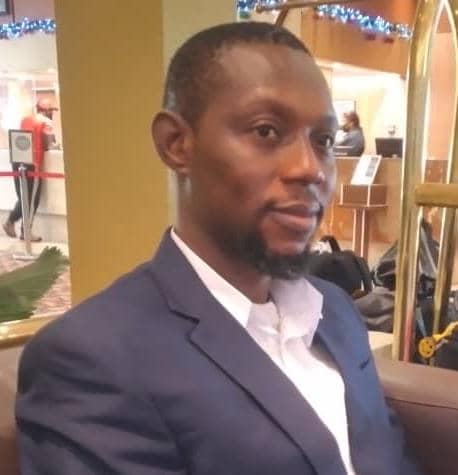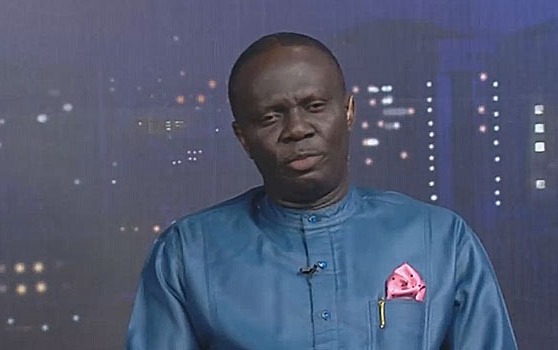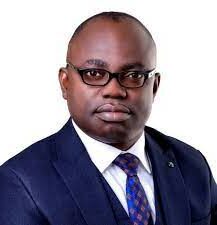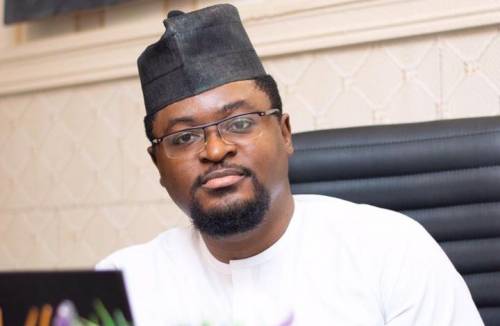In Defence of Long-Standing ECOMOG Protocols By Prof ‘Tola Badejo
I am neither a student of Political Science nor International Relations. I cannot even claim to remember the Civics I was taught in the secondary school in the late 1960s. All I know is that I am a political animal like any other human being on earth. Unlike those who suppress this natural instinct, I make sure that I grease my own by showing interest in political developments not only in my country but in the international arena.
That very day the guards who were supposed to be protecting the President of Niger Republic pushed him out of office, I felt like a fish out of water. The coup announcement by Josef Naven Garba, the head of Brigade of Guards during Gowon’s regime on July 29, 1975, came back to my memory and the concept of betrayal set me thinking about this animal called man.
I have never been keenly interested in Niger Republic just as other neighbouring francophone countries in the western and eastern coasts of Nigeria. To me and many people in Western Nigeria, Ghana was our closest neigbhour in the western coast. The reason is not farfetched. It is because we shared the English language, the lingua franca which the colonial masters imposed on us. In the late 70s, I didn’t feel any urge to visit a border town in Niger Republic which was not up to 100 km from Kaura Namoda where I lived for one year as a Youth Corper. The main reason was that I could neither speak Hausa nor French.
The recent coup in Niger Republic erased all apathetic feelings about that country in me. My hatred for military regimes was restored and I took interest in every debate on the political developments with great enthusiasm. I was impressed that ECOWAS swung into action immediately. In the spirit of disapproval of undemocratic rule in this part of the continent where monarchical rule does not exist at the national level, I was satisfied with all expressed opinions condemning the coup until when I started hearing opinions that appeared to be endorsing the coup for many frivolous reasons. Some of these reasons include: Nigerien citizens are in support of the coup; Northern Nigerians have relatives who are citizens of Niger; the wife of the coup leaders in Niger Republic is a Northern Nigerian; six states in Nigeria share boundaries with Niger Republic; etc.
Known political opponents of the ruling party took the new Nigerian government to the cleaners. They became friends of Nigeriens who a few months ago were their enemies because they believed the immediate past President is related to and had a soft spot for them. Coup d’etat which Nigerians jettisoned towards the end of the 20th Century became justifiable. All sorts of positions that were hitherto anachronic, barbaric and primitive took the centre stage just because people were afraid of the consequences of our government leading ECOWAS into a war against the traitors (not the people) in Niger Republic.
The proximate stimulus that led me to putting pen to paper on these developments in Niger Republic was the early morning interview of Ademola Abass, a Professor of International Law by the Channels TV crew in the Sunrise Daily programme on Thursday August 10. This erudite Professor made my day with pertinent revelations on the West African sub-region and the role of other international bodies in respect of using force to restore a democratically elected government. His conclusion that no regional group can force a member country to war sank deep in me. He cited two ECOWAS protocols of 1999 and 2001 to which Niger Republic is a signatory. These protocols state unequivocally that after agreement by the regional group to go into war to restore democracy in a member country, each head of state goes back to his country to ask for endorsement to take part in the war. Nigerians who concluded that our new President unilaterally decided to go to war therefore missed the point. The leadership role bestowed on him as the President of ECOWAS clearly prevents him from going against the provisions of the legitimate protocols unless they are suspended or repealed. In my opinion, the decision to impose sanctions and issue a one-week ultimatum to the coupists to reinstall President Bazoum or face possible use of force, at their first extraordinary meeting on Monday July 31, was the least they could do given the prevailing circumstances. Nobody fights an enemy with kid gloves and expect to win.
My investigations after this interview revealed that this situation is not the first in the sub-region and it will not be the first time that Nigeria will play a leading role in this effort of routing out of office West African leaders that were not democratically elected.
In 1990, the regional bloc created a military arm, The Economic Community of West African States Monitoring Group (ECOMOG), whose mandate was to regularly intervene in conflicts within the region. This was immediately after Charles Taylor led a militia against the Liberian government. The ECOMOG contingent was formed with personnel drawn from Nigeria, The Gambia, Ghana, Guinea, and Sierra Leone with additional soldiers contributed by Mali. Three of these countries share borders with Liberia. The war lasted till 1996 but ECOMOG achieved their aims.
The next port of call was Sierra Leone in 1997 when Major Johnny Paul Koroma overthrew the elected government of Ahmed Tejan Kabbah. ECOMOG launched an attack in February 1998, that led to the fall of the military regime and Kabbah was reinstalled as President.
There was an attempted coup in Guinea Bissau in 1998. ECOMOG forces moved in and eventually, a Peace Accord was signed in Abuja in November 1999.
In 2003, the political logjam was between the Ivorian armed forces and rebel groups. The troops of United Nations and France were complimented by ECOMOG to enforce a ceasefire agreement.
A second civil war broke out in Liberia in 1999. ECOMOG troops returned to Liberia to serve as an interposition force that kept the warring parties apart and facilitated the arrival of the United Nations Mission which eventually led to the exit of Charles Taylor in 2003.
Ten years later, it was Mali’s turn. A military coup led to breakdown of law and order in Mali. ECOMOG led a troop that supported the Malian government in the fight against the rebels. Nigeria contributed most of the troops. Other West African countries that were involved include Gabon, Ivory Coast, Niger and Burkina Faso. The mission was authorized by a United Nations Security Council Resolution.
In 2017, when Yahya Jammel refused to concede election loss to Adama Barrow in the Gambian 2016 election, an ECOWAS operation led by neighbouring Senegal went into Banjul to force Jammel out of Power. The operation was codenamed “Operation Restore Democracy”. Barrow was sworn in as President at the Gambian embassy in Dakar.
The ECOWAS troops ensured the transition within three days and remained in Gambia until December 2021.
With the knowledge of all these historic activities at the backdrop, one wonders where the leaders of ECOWAS have gone wrong in their decision of Monday July 31. The further declaration of Thursday August 10 has suggested that high class diplomacy will be at play in the West African sub-region in the coming months. Already, there are back channel negotiations which many of the critics of ECOWAS on this issue may not be aware of.
Cowardice has pushed some Nigerians into believing that the coupists in Niger Republic can use the Kandadji dam under construction to deprive Nigeria of water to generate electricity if ECOWAS goes into war with them. This is a clear-cut case of an ectoparasite that is determined to kill its host.
Lack of in-depth information on geothermal generation of electricity has led some ignorant Nigerians into shameful acts of cowardice. Indepth investigations have revealed that the coupists in Niger Republic have no power to cause any discomfort to Nigerians in the power sector. The unprecedented energy crisis faced by Niger Republic after the coup d’état has compelled the contractor, China Gezhouba Group Company (CGGC) to suspend construction work on the Kandadji dam on the River Niger near Niamey the capital of Niger Republic. There is no doubt that it is the citizens of Niger Republic who will bear the brunt of these unfortunate developments. Kandadji Dam is in itself an aberration. It is being constructed in defiance of a United Nations Act enacted on October 26, 1963, regarding the navigation and economic co-operation between the States of the River Niger Basin.
The Uranium deposits in Niger Republic also crept in as another reason why it is dangerous to go into war with them. All sorts of claims abound in the social media of the true position of Uranium deposits in Niger Republic. One claims that the largest deposits of Uranium in Africa are in Niger Republic. Another says their Uranium happens to be the highest grade on planet earth. If this is true, I wonder why the Americans went to Shinkolobwe in the Demographic Republic of Congo to get the Uranium they used to bomb Hiroshima and Nagasaki in 1945 and not Arlit and Akokan in Niger Republic. The claim that Niger Republic is the 4th largest producer of Uranium on earth is most likely to be untrue. Reliable information at my disposal is that Niger Republic is not among the first ten countries with Uranium reserves in the world. There is more Uranium in South Africa and Tanzania than in Niger. In a well organized war situation with appropriate sanctions, the traitors in Niger who lack the indigenous expertise to manufacture any dangerous product from this mineral deposit locally will not be able to make money from it. Rather, it will be a battle between France and their new found ally, Russia. We are now in a multipolar world where the monopoly of the United States of America in all fronts has been diminished.
The gas pipeline project that is being built from Warri in Nigeria through the entire Niger Republic to Algeria from where it will be sold to the European countries and the Americas has also suffered a setback because of this coup. By the time people who are saying ECOWAS should leave the coupists alone realise the implications on the global gas market, they will hide their heads in shame. Yes, it is true that Russia did not colonize any African country in the colonial era, but care must be taken to stop them from the impending 21st Century colonization. China has already achieved a lot in this respect by providing huge loans to fund developmental projects in Africa.
It is quite interesting that the junta in Niger Republic is now ready for dialogue. If they don’t do this and relinquish power immediately, they are inadvertently preparing a fertile ground for a counter-coup if other non violent actions by ECOMOG fail. If this happens and the counter-coupists join hands with ECOWAS in restoring constitutional order, the coupists will have themselves to blame. As long as the current situation in Niger Republic was not brought about by insurrection on the streets of Niger against the democratically elected government, I am not interested in the reasons for planning this coup. If President Bazoum is not competent, there are enough democratic and constitutional options that can be employed to remove him from office.
It is not unexpected that Russia has declared support for the military junta in Niger. I see this as another attempt to make Russia assume the position of USSR in those days of bipolar world. Nigerians who decried Russian invasion of Ukraine have embarked on another contradictory mission because of partisan politics. It is quite unfortunate.
Acceptance of Russia for support by any African country because of hatred for their European colonial masters is like cockroaches believing that belligerent soldier ants can rescue them from termites in a wooden hut.
Chronic critics of the current government who have seized the opportunity of the situation in Niger Republic to declare that this government which is not capable of finding sustainable solutions to the deplorable situation of our economy cannot win a war with a neighbouring country, are looking at the crooked load on the head of a cripple and not the physical challenge of the bipedal quadruped. The truth is that all successive governments right from the first military coup in Nigeria since 1966 have contributed one way or the other to our political and economic situation. A long lasting solution cannot be realised in less than 100 days in office by any mortal.
Those who hinged their tacit support for the coupists in Niger Republic because the citizens have accepted them have forgotten that Nigerians rejoiced at every military coup in Nigeria too only to discover that those they welcomed to power with jubilations eventually turned out to be worse than the democratically elected government they flushed out. In Nigeria, one Military President annulled a transparently free and fair election so as to perpetuate military rule. This is one reason why the unilateral decision of the junta to rule for just three years is not acceptable to ECOWAS. History has revealed that no military regime relinquishes power willfully. They have to be forced out by circumstances beyond their control. ECOWAS should be encouraged to continue to stand firm on tightening the noose on the coupists by using all the tools in their arsenal before embarking on the last option which is the use of force. May we never get there. Nobody wants war unless it becomes inevitable. I see the current situation as a win-win for both parties. By not carrying out the threat of use of force within one week by ECOWAS, the junta won. ECOWAS on the other hand won when the junta changed their mind and decided to meet with the delegation led by retired General Abdulsalami Abubakar of Nigeria last week. With these developments, I believe that ECOWAS will succeed in finding a diplomatic solution to the situation very soon.
It is true that Francophone countries in West Africa are in bondage due to the post-independence colonial pacts with France which has succeeded in putting their economies under remote control by France. It is also true that the government of President Bazoum, like all his predecessors in the country have done little to reverse this trend. Military men who do not feel comfortable with the deplorable situation in Niger Republic should retire from the army and mount the soapbox. Julius Maada Bio did something like this in Seirra Leone. He was Military Head of State for a few months in 1996 before he relinquished power to a democratically elected government. He contested for Presidency unsuccessfully as a civilian in 2012. He came back again in 2018 and was elected President. He is still in office having won election for a second term in office this year.
Ordinarily, Niger Republic is not a country that Nigeria should support in any way for any reason. Based on the construction of the Kandadji dam alone against a UN resolution, President Kazoum is not a friend of Nigeria. However, supporting a coup against him is an erroneous way of dealing with him.
It is quite disturbing seeing 21st Century retrogression into acceptance of coups. More disturbing is that people who for partisan reasons, discourage their President from obeying long standing ECOWAS treaties.
Prof. ‘Tola Badejo
Department of Zoology, OAU, Ile-Ife.
August 22, 2023.
Prof. Badejo was the Vice-Chancellor of Wesley University in Ondo from 2008 to 2015.







